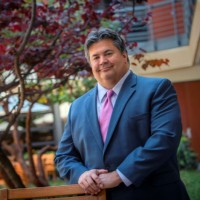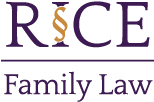Recently, I became involved in a case in which Wife was seeking a DVRO based in large part on the statements she claimed her ex-husband made during a court hearing. Mind you, the judge presiding over that hearing did not sanction Husband. The statements allegedly made during the hearing by Husband were not made to Wife; they were aimed at the Court exclusively. Moreover, Wife did not allege that Husband’s statements were unrelated to the proceedings. Yet, a different judge granted an application for DVTRO based, at least in part, on Wife’s characterization of Husband’s prior statements to the Court during that earlier hearing.
Wife’s attorney and the second judge appeared to overlook the application of the litigation privilege, which protects a party from liability for communications and actions in the context of litigation, even if they are “alleged to be fraudulent, perjurious, unethical or even illegal.”[1] However, to be protected by the privilege, the communications must be logically related to the litigation in which the statement was made.[2]
The California Supreme Court has defined the litigation privilege, which appears in Civil Code section 47, subdivision (b) as follows: “The usual formulation is that the privilege applies to any communication (1) made in judicial or quasi-judicial proceedings; (2) by litigants or other participants authorized by law; (3) to achieve the objects of the litigation; and (4) that have some connection or logical relation to the action.”[3]
The litigation privilege is absolute. It applies regardless of whether the communication was made with malice or intent to harm.[4] The application of the privilege does not depend on the publisher’s “motives, ethics or intent.”[5] The scope of the litigation privilege is very broad. It applies to any communication having “some relation” to a judicial proceeding.[6] It is not limited to statements made in a courtroom, but also includes actions by administrative bodies and quasi-judicial proceedings.[7]
The California Supreme Court offered the following rationale for the privilege: “The principal purpose of section [47(b)] is to afford litigants and witnesses [citation] the utmost freedom of access to the courts without being harassed subsequently by derivative tort actions. [Citation].[8] However, the litigation privilege does not operate to bar an action for malicious prosecution.[9]
In family law cases, where there the definition of “abuse” in the DVPA appears to be broadening, and where emotions may run hot, things may be said during a hearing, or perhaps a settlement conference, that one party may believe forms the basis for a restraining order. While Family Code section 271, which stands in for malicious prosecution in family law matters, may provide for sanctions for unfortunate outbursts, there may be a strong argument that communications made in the course of litigation—both in and out of court—may be protected by the litigation privilege, and cannot be used as the basis for restraining order, provided that the statements have some connection or logical relation to the judicial proceeding, are permitted by law and are made to achieve the object of the litigation.
Rice Family Law exists to support other family law practitioners. If you have questions or need someone to be an “associate” to write something, make an appearance or even handle a deposition or evidentiary hearing, give me a call at (858) 733-5886 to see if I can help.
[1] Kashian v. Harriman (2002) 98 Cal.App.4th 892, 920.
[2] Id.
[3] Silberg v. Anderson (1990) 50 Cal.3d 205, 212.
[4] Wise v. Thrifty Payless, Inc.(2000) 83 Cal.App.4th 1296, 1302.
[5] Silberg, supra, 50 Cal.3d at 220.
[6] Rubin v. Green 4 Cal.4th 1187, 1193-1194.
[7] Wise, supra, 83 Cal.App.4th at 1303.
[8] Silberg, supra, 50 Cal.3d at 213.
[9] Silberg, supra, 50 Cal.3d at 215.
About the Author

Wayne Rice
Wayne J. Rice has been designated by the State Bar of California as a Certified Family Law Specialist. In 2021, Wayne founded Rice Family Law with the goal of providing support to other family law attorneys. Whether an occasional need or long-term support, Wayne has the experience and expertise to assist lawyers with serving their clients’ family law needs.


